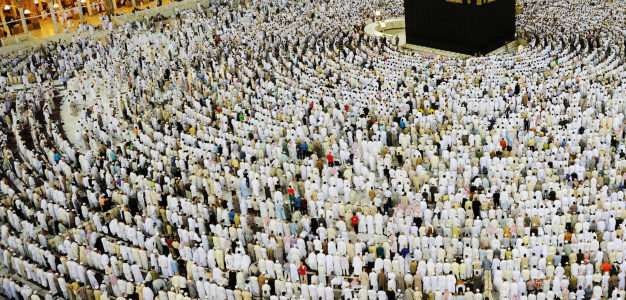13th November 2020
السلام عليكم و رحمة الله و بركاته
Question: I wanted to ask if bleaching your eyebrows (lighter or darker) is permissible?
الجواب حامداً و مصلياً
In the name of Allāh, the Most Gracious, the Most Merciful
Answer
In reference to your query, eyebrow bleaching is a chemical procedure by applying a specific type of cream onto the eyebrows to make the thick and dark hairs lighter in appearance and to take their natural colours out.[1]
It is generally permissible to bleach the eyebrows in order to draw out their natural colour. One must however avoid bleaching them using the colour black for the purpose of covering the white hairs. One must ensure that impure ingredients are not used in the bleaching process. Also, the chemical used should not form a coating over the eyebrow hairs as this would stop water from reaching the hairs hence wudhu and fardh ghusl would not be valid.[2]
[Allāh Knows Best]
Written by: Apa Sajeda Reviewed by: Mufti Abdul Waheed
Attested by: Shaykh Mufti Saiful Islam
JKN Fatawa Department
[1] Pros And Cons Of Eyebrow Bleaching – with Procedure and Side Effects, Available at https://www.beautyglimpse.com/pros-and-cons-of-eyebrow-bleaching-you-must-know-before-giving-it-a-shot [accessed November 2020]
[2] Raddul Muhtar ala Durril Mukhtar, Kitāb Al-Kuntha, Masail Shatta, Vol 6, pg. 756
)قَوْلُهُ جَازَ فِي الْأَصَحِّ) وَهُوَ مَرْوِيٌّ عَنْ أَبِي يُوسُفَ فَقَدْ قَالَ: يُعْجِبُنِي أَنْ تَتَزَيَّنَ لِي امْرَأَتِي كَمَا يُعْجِبُهَا أَنْ أَتَزَيَّنَ لَهَا وَالْأَصَحُّ أَنَّهُ لَا بَأْسَ بِهِ فِي الْحَرْبِ وَغَيْرِهِ وَاخْتَلَفَتْ الرِّوَايَةُ فِي أَنَّ النَّبِيَّ – صَلَّى اللَّهُ عَلَيْهِ وَسَلَّمَ – فَعَلَهُ فِي عُمْرِهِ وَالْأَصَحُّ لَا وَفَصَّلَ فِي الْمُحِيطِ بَيْنَ الْخِضَابِ بِالسَّوَادِ قَالَ عَامَّةُ الْمَشَايِخِ: إنَّهُ مَكْرُوهٌ وَبَعْضُهُمْ جَوَّزَهُ مَرْوِيٌّ عَنْ أَبِي يُوسُفَ، أَمَّا بِالْحُمْرَةِ فَهُوَ سُنَّةُ الرِّجَالِ وَسِيَّمَا الْمُسْلِمِينَ اهـ مِنَحٌ مُلَخَّصًا وَفِي شَرْحِ الْمَشَارِقِ لِلْأَكْمَلِ وَالْمُخْتَارُ أَنَّهُ – صَلَّى اللَّهُ عَلَيْهِ وَسَلَّمَ – خَضَّبَ فِي وَقْتٍ، وَتَرَكَهُ فِي مُعْظَمِ الْأَوْقَاتِ، وَمَذْهَبُنَا أَنَّ الصَّبْغَ بِالْحِنَّاءِ وَالْوَسْمَةِ حَسَنٌ كَمَا فِي الْخَانِيَّةِ قَالَ النَّوَوِيُّ: وَمَذْهَبُنَا اسْتِحْبَابُ خِضَابِ الشَّيْبِ لِلرَّجُلِ وَالْمَرْأَةِ بِصُفْرَةٍ أَوْ حُمْرَةٍ وَتَحْرِيمُ خِضَابِهِ بِالسَّوَادِ عَلَى الْأَصَحِّ لِقَوْلِهِ – عَلَيْهِ الصَّلَاةُ وَالسَّلَامُ – «غَيِّرُوا هَذَا الشَّيْبَ وَاجْتَنِبُوا السَّوَادَ
Ibn Nujaym, Bahr Raiq, Kitabul Karahiya, Vol 8, Pg. 208
وَلَا بَأْسَ بِخِضَابِ الرَّأْسِ وَاللِّحْيَةِ بِالْحِنَّاءِ وَالْوَشْمَةِ لِلرِّجَالِ وَالنِّسَاءِ لِأَنَّ ذلك سَبَبٌ لِزِيَادَةِ الرَّغْبَةِ وَالْمَحَبَّةِ بين الزَّوْجَيْنِ
Maraqi Al Falah, Fasl Fe Tamam Ahkam Wudhu, Vol 1, Pg. 30-31
افترض أي” وجب بتغميضها العين بخارج ورمص وشمع” كعجين االجسد إلى يصل أن” الماء يمنع شيء أي غسل ما تحته بعد إزالته المانع

